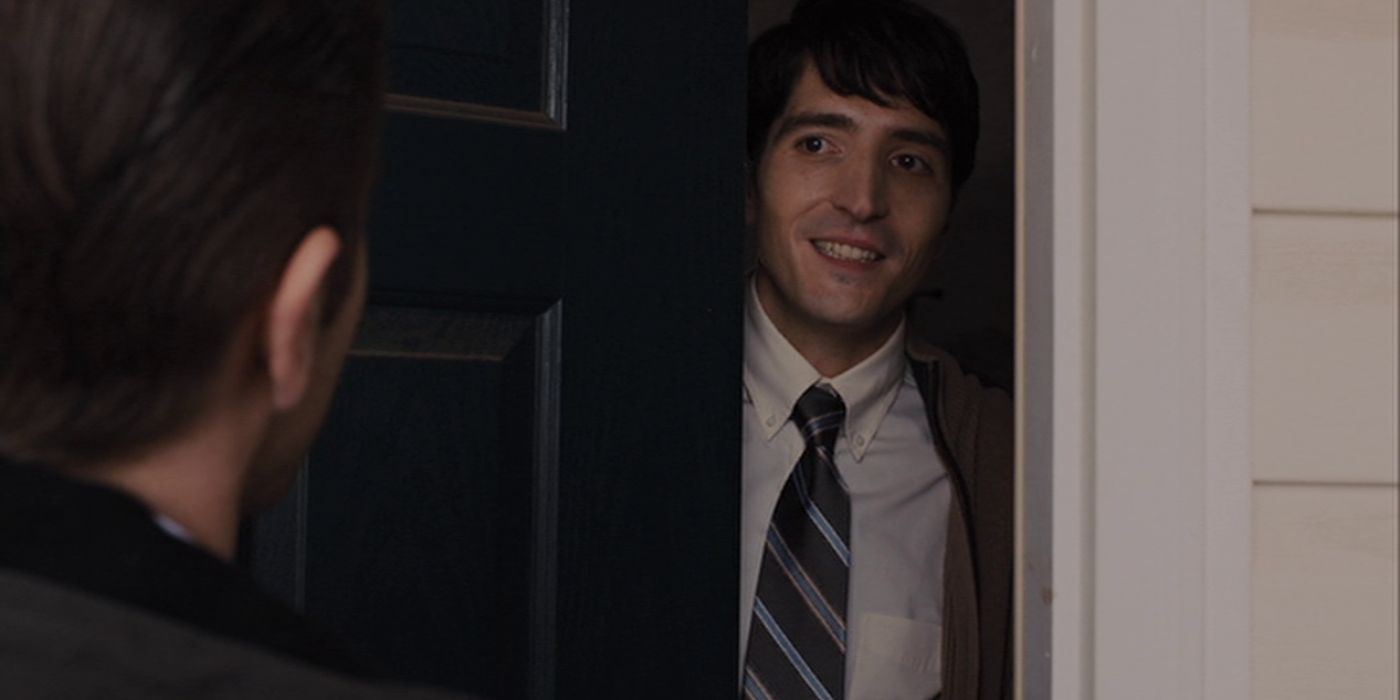
Raw and Heart-wrenching: Inside the Emotional Turmoil of the Prisoners Star's Grueling Death Scene

Dastmalchian candidly reveals the emotional impact of his character's death scene in Prisoners, shedding light on the intense handling of the pivotal moment A compelling insight into the actor's experience
This article and the video embedded contain discussions about suicide and mental health.
Summary
David Dastmalchian candidly shares his experience filming the emotionally challenging suicide scene for his character in Prisoners, drawing attention to its triggering effect due to his own struggles with mental health. He emphasizes the necessity for additional support and guidance while filming such sensitive scenes and reveals feeling somewhat disoriented during the shoot.
David Dastmalchian, known for his role in Prisoners, offers insight into the emotional toll his character's death scene took on him. Directed by Denis Villeneuve, Prisoners revolves around the abduction of two children and the relentless search that drives one father to extreme measures. This 2013 film received critical acclaim for its outstanding performances, particularly from Hugh Jackman and Jake Gyllenhaal, and garnered an Academy Award nomination for its exceptional cinematography. Dastmalchian portrayed Bob Taylor, a suspect whose involvement in the kidnappings and troubled encounters with Detective Loki (Gyllenhaal) ultimately led to his tragic demise.
During a recent interview with Cinema Therapy, Dastmalchian spoke about his character's psychology and how emotionally challenging the death scene was for him, given his own personal struggles with mental health. He expressed the need for additional support if he were to film another suicide scene in the future. Dastmalchian also shared his gratitude for working with director Denis, who deeply cares for his actors and provides a loving and supportive environment on set. Reflecting on his experience shooting the suicide scene, Dastmalchian acknowledged that there was a moment where he felt triggered and lost, but fortunately, they took a pause and he was able to regain his focus.
Dastmalchian’s Role In Prisoners Explained
Detective Loki spots Bob at a vigil for Anna Dover and Joy Birch, where he leaves a stuffed animal, raising his suspicions. With growing doubts about Dastmalchian's character, especially after his purchase of children's clothes, Loki arrests him. Searching Bob's house, incriminating evidence surfaces suggesting his involvement in the girls' disappearance, such as boxes of blood-stained garments, maze sketches, and snakes. In frustration, Loki confronts Bob, who seizes a police officer's gun and takes his own life. The concluding moments of Prisoners unveil Holly Jones (Melissa Leo) as the true culprit behind the crimes, revealing Bob to have been her victim.
Bob's apparent struggles with mental health add significance to Dastmalchian's comments about his own experiences. Dastmalchian discloses that while Bob survived his kidnapping, he still endured emotional scars from his past, specifically from Holly and her husband's actions. Throughout Prisoners, Bob's actions, such as creating mazes, suggest the enduring impact of these memories.
Prisoners is a gripping film, and the untimely demise of Bob adds an extra layer of tragedy, especially in light of the revelations about him. Dastmalchian's portrayal of the scene is noteworthy, and it is intriguing to gain insights into his personal experiences and how they shaped his approach to the role. Considering his statements, it is thought-provoking to contemplate how Bob's life could have been different if he had received the support he needed.








